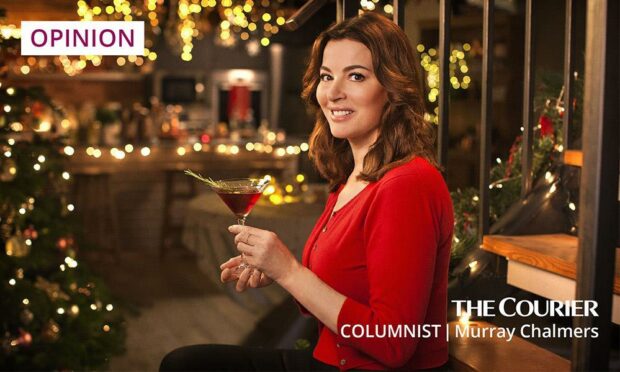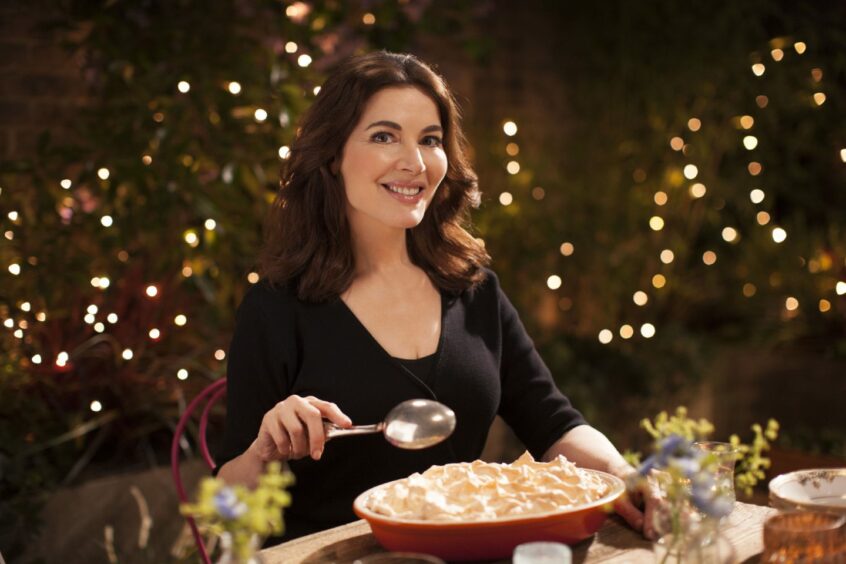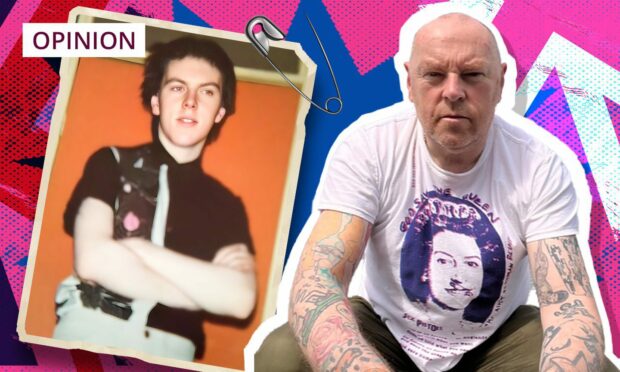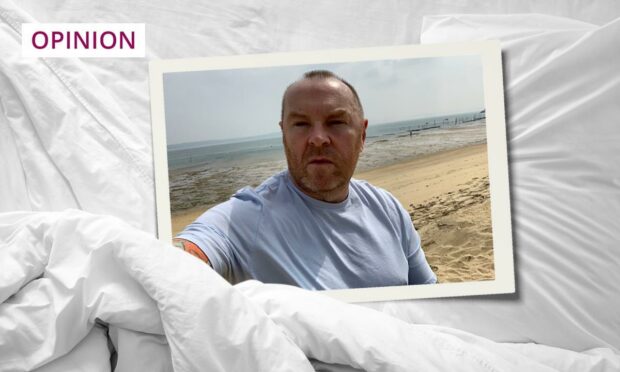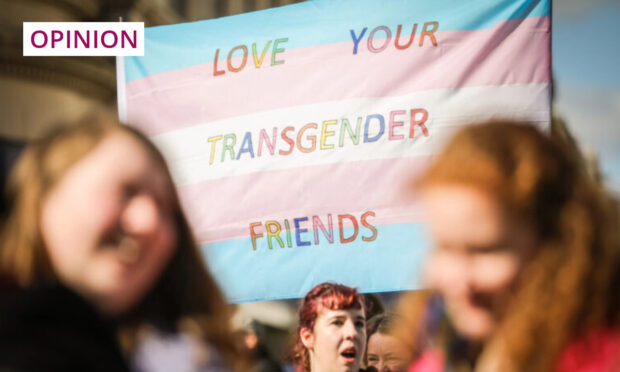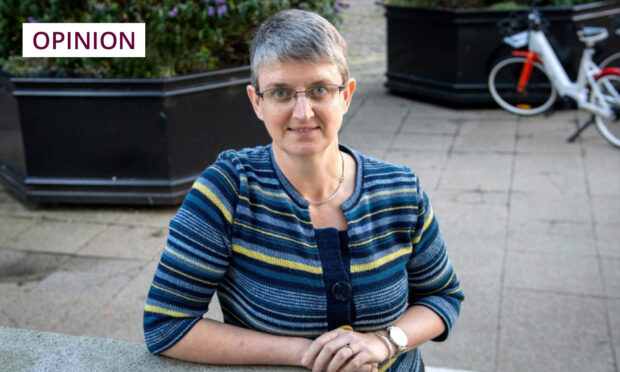Every morning my cat Moses unfurls from his slumbers at the bottom of the bed, leaps onto my chest and stares into my eyes as I start to stroke him gently.
As my tickling intensifies his purring is something to behold. It’s so simple and rewarding a response to pleasure that I could easily start purring too.
Moses and I spend about 15 minutes in this state of mutual reverie and it’s genuinely a time when my mind is absolutely free, flooded with such joy that nothing else in the world matters.
Sadly, after this dozy dopamine surge it all goes speedily downhill even before I get in the shower.
Every single day.
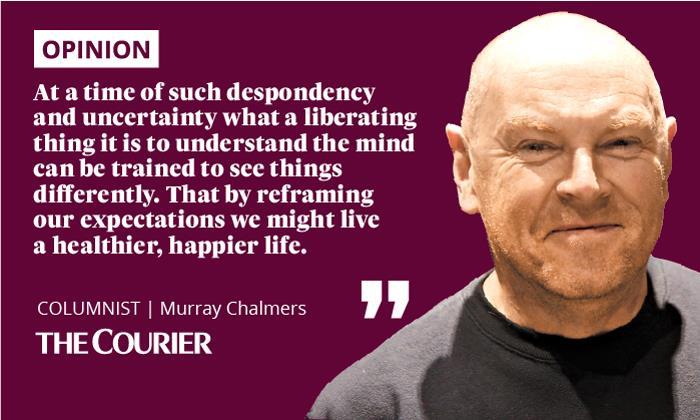
As soon as I switch my phone on and look at Twitter the enormity of what we’re all facing daily threatens to drown me like the highest of the Tay tides outside my window.
I’m so used to this eternal state of panic it’s become my default setting.
I now view any human getting too close as an ambulatory source of infection, rather than someone wanting to bump my elbow – a gesture now so inextricably linked to Boris Johnson that I instinctively check my wallet’s still there afterwards.
Nevertheless, Christmas is my favourite time.
And I’m determined to make this one better than last year, when my sister was forced to stay in London because we chose to follow the lockdown rules.
Like a lot of people we had Christmas on Zoom in 2020.
How I wish we’d simply donned our power suits and had some friends round for a “business meeting” on the big day.
All hail Nigella, the Queen of Christmas
This is supposed to be a column about the power of positive thinking though.
And solace this week came via the wonderful Nigella Lawson, whose book How To Eat is my bible at Christmas.
It negotiates the frenzy of festive food so adeptly and methodically that a Nigella Christmas is like opening an advent calendar while sipping Marsala and listening to Miles Davis, except with more fairy lights and sparkles.
And after this year of hell who could resist a taste of heaven?
Much as I adore her cookbooks, this week’s recommendation was perhaps even more useful than how to brine a turkey in a bucket, transformational as that information is.
Her tip was an excellent podcast called The Bunker and the episode I listened to featured the journalist and award- winning science writer David Robson, discussing his forthcoming book The Expectation Effect.
To say I’ve become evangelical about this book is an understatement.
I’ve just driven to Edinburgh and back just to get a pre-publication copy from the publisher, even though I’d already read it as a PDF. It’s published by Canongate on January 6.
This is a book that might actually change your life.
It certainly feels like it might change mine.
What if you could retrain your brain?
The first thing to say is this is not a self- help book.
You know those titles that promise untold riches and success if only you can believe enough that you need them?
I’ve tried chanting for money and love and only succeeded in feeling like an east coast version of AbFab’s Edina Monsoon.
Instead I gained weight and lost faith as fast as my stomach and brain could process my incipient failures.
The Expectation Effect is a more science-based study. It examines how the brain works and how the way we think can help us navigate life more productively and more happily.
I was riveted by @d_a_robson’s new book The Expectation Effect, which is not out till January, I’m afraid, but this brilliant interview by @sturdyAlex is available now, and I recommend you give it a listen. https://t.co/sM4udfEZ8r
— Nigella Lawson (@Nigella_Lawson) December 16, 2021
Essentially, it’s an expansive exploration of the idea that positive thinking is more likely to lead to better things happening to you than if you spend your life as a Negative Nellie.
Think positive and happiness and health might follow
My own addled brain has been reeling since I read it.
At a time of such despondency and uncertainty what a liberating thing it is to understand the mind can be trained to see things differently.
That by reframing our expectations we might live a healthier, happier life.
You want anecdotes and facts?
The most striking for me included evidence that placebos in medicine DO work and that stress triggers illness.
And here’s another. There’s evidence to suggest that mass psychogenic illnesses appear to be especially common during times of political upheaval or warfare.
If you think of the pain the world is experiencing right now is it any wonder most of us feel like we have the weight of it on our shoulders daily?
Life’s challenges have never seemed so relentless and overwhelming as they do now.
Maybe we all need to find a way to adapt to these brutal times by reframing our expectations of our place within the madness.
